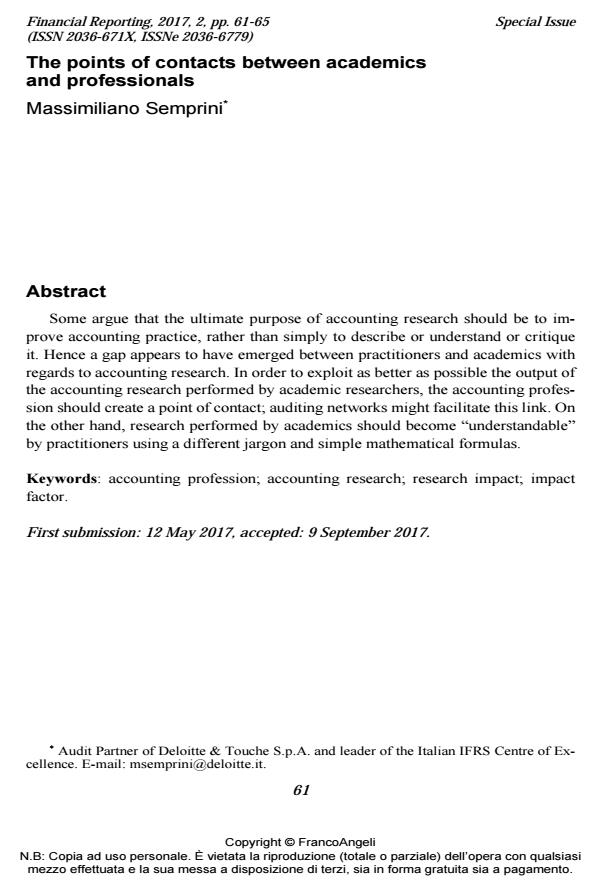The points of contacts between academics and professionals
Journal title FINANCIAL REPORTING
Author/s Massimiliano Semprini
Publishing Year 2017 Issue 2017/2
Language English Pages 5 P. 61-65 File size 238 KB
DOI 10.3280/FR2017-002006
DOI is like a bar code for intellectual property: to have more infomation
click here
Below, you can see the article first page
If you want to buy this article in PDF format, you can do it, following the instructions to buy download credits

FrancoAngeli is member of Publishers International Linking Association, Inc (PILA), a not-for-profit association which run the CrossRef service enabling links to and from online scholarly content.
Some argue that the ultimate purpose of accounting research should be to improve accounting practice, rather than simply to describe or understand or critique it. Hence a gap appears to have emerged between practitioners and academics with regards to accounting research. In order to exploit as better as possible the output of the accounting research performed by academic researchers, the accounting profession should create a point of contact; auditing networks might facilitate this link. On the other hand, research performed by academics should become "understandable" by practitioners using a different jargon and simple mathematical formulas.
Keywords: Accounting profession; accounting research; research impact; impact factor.
Massimiliano Semprini, The points of contacts between academics and professionals in "FINANCIAL REPORTING" 2/2017, pp 61-65, DOI: 10.3280/FR2017-002006